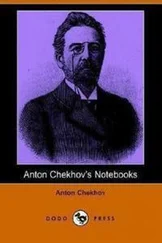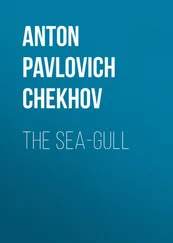Антон Чехов - Letters of Anton Chekhov
Здесь есть возможность читать онлайн «Антон Чехов - Letters of Anton Chekhov» весь текст электронной книги совершенно бесплатно (целиком полную версию без сокращений). В некоторых случаях можно слушать аудио, скачать через торрент в формате fb2 и присутствует краткое содержание. Год выпуска: 2004, Жанр: Прочая документальная литература, на английском языке. Описание произведения, (предисловие) а так же отзывы посетителей доступны на портале библиотеки ЛибКат.
- Название:Letters of Anton Chekhov
- Автор:
- Жанр:
- Год:2004
- ISBN:нет данных
- Рейтинг книги:5 / 5. Голосов: 1
-
Избранное:Добавить в избранное
- Отзывы:
-
Ваша оценка:
- 100
- 1
- 2
- 3
- 4
- 5
Letters of Anton Chekhov: краткое содержание, описание и аннотация
Предлагаем к чтению аннотацию, описание, краткое содержание или предисловие (зависит от того, что написал сам автор книги «Letters of Anton Chekhov»). Если вы не нашли необходимую информацию о книге — напишите в комментариях, мы постараемся отыскать её.
Letters of Anton Chekhov — читать онлайн бесплатно полную книгу (весь текст) целиком
Ниже представлен текст книги, разбитый по страницам. Система сохранения места последней прочитанной страницы, позволяет с удобством читать онлайн бесплатно книгу «Letters of Anton Chekhov», без необходимости каждый раз заново искать на чём Вы остановились. Поставьте закладку, и сможете в любой момент перейти на страницу, на которой закончили чтение.
Интервал:
Закладка:
Chekhov spent the year 1894 at Melihovo, began writing "The Seagull," and did a great deal of work. He paid a visit to Tolstoy at Yasnaya Polyana, and returned enchanted with the old man and his family. Chekhov was already changing; he looked haggard, older, sallower. He coughed, he was tortured by intestinal trouble. Evidently he was now aware of the gravity of his illness, but, as before, made no complaint and tried to hide it from others.
In 1896 "The Seagull" was performed at the Alexandrinsky Theatre in Petersburg. It was a fiasco. The actors did not know their parts; in the theatre there was "a strained condition of boredom and bewilderment." The notices in the press were prejudiced and stupid. Not wishing to see or meet anyone, Chekhov kept out of sight after the performance, and by next morning was in the train on his way back to Melihovo. The subsequent performances of "The Seagull," when the actors understood it, were successful.
Chekhov had collected a large number of books, and in 1896 he resolved to present them to the public library in his native town of Taganrog. Whole bales of books were sent by Chekhov from Petersburg and Moscow, and Iordanov, the mayor of Taganrog, sent him lists of the books needed. At the same time, at Chekhov's suggestion, something like an Information Bureau was instituted in connection with the Taganrog Library. There were to be catalogues of all the important commercial firms, all the existing regulations and government enactments on all current questions, everything, in fact, which might be of immediate service to a reader in any practical difficulty. The library at Taganrog has now developed into a fine educational institution, and is lodged in a special building designed and equipped for it and dedicated to the memory of Chekhov.
Chekhov took an active interest in the census of the people in 1896. It will be remembered that he had made a census of the whole convict population of the island of Sahalin on his own initiative and at his own expense in 1890. Now he was taking part in a census again. He studied peasant life in all its aspects; he was on intimate terms with his peasant neighbours, to whom he was now indispensable as a doctor and a friend always ready to give them good counsel.
Just before the census was completed Chekhov was taken ill with influenza, but that did not prevent his carrying out his duties. In spite of headache, he went from hut to hut and village to village, and then had to work at putting together his materials. He was absolutely alone in his work. The Zemsky Natchalniks, upon whom the government relied principally to carry out the census, were inert, and for the most part the work was left to private initiative.
In February, 1897, Chekhov was completely engrossed by a project of building a "People's Palace" in Moscow. "People's Palaces" had not been thought of; the common people spent their leisure in drink-shops. The "People's Palace" in Moscow was designed on broad principles; there was to be a library, a reading-room, lecture-rooms, a museum, a theatre. It was proposed to run it by a company of shareholders with a capital of half a million roubles. Owing to various causes in no way connected with Chekhov, this scheme came to nothing.
In March he paid a visit to Moscow, where Suvorin was expecting him. He had hardly sat down to dinner at The Hermitage when he had a sudden haemorrhage from the lungs. He was taken to a private hospital, where he remained till the 10th of April. When his sister, who knew nothing of his illness, arrived in Moscow, she was met by her brother Ivany who gave her a card of admission to visit the invalid at the hospital. On the card were the words: "Please don't tell father or mother." His sister went to the hospital. There casting a casual glance at a little table, she saw on it a diagram of the lungs, in which the upper part of the left lung was marked with a red pencil. She guessed at once that this was what was affected in Chekhov's case. This and the sight of her brother alarmed her. Chekhov, who had always been so gay, so full of spirits and vitality, looked terribly ill; he was forbidden to move or to talk, and had hardly the strength to do so.
He was declared to be suffering from tuberculosis of the lungs, and it was essential to try and ward it off at all costs, and to escape the unwholesome northern spring. He recognized himself that this was essential.
When he left the hospital he returned to Melihovo and prepared to go abroad. He went first to Biarritz, but there he was met by bad weather. A fashionable, extravagant way of living did not suit his tastes, and although he was delighted with the sea and the life led (especially by the children) on the beach, he soon moved on to Nice. Here he stayed for a considerable time at the Pension Russe in the Rue Gounod. He seemed to be fully satisfied with the life there. He liked the warmth and the people he met, M. Kovalevsky, V. M. Sobolesky, V. T. Nemirovitch-Dantchenko, the artist V. T. Yakobi and I. N. Potapenko. Prince A. I. Sumbatov arrived at Nice too, and Chekhov used sometimes to go with him to Monte Carlo to roulette.
Chekhov followed all that he had left behind in Russia with keen attention: he was anxious about the Chronicle of Surgery , which he had more than once saved from ruin, made arrangements about Melihovo, and so on.
He spent the autumn and winter in Nice, and in February, 1898, meant to go to Africa. He wanted to visit Algiers and Tunis, but Kovalevsky, with whom he meant to travel, fell ill, and he had to give up the project. He contemplated a visit to Corsica, but did not carry out that plan either, as he was taken seriously ill himself. A wretched dentist used contaminated forceps in extracting a tooth, and Chekhov was attacked by periostitis in a malignant form. In his own words, "he was in such pain that he climbed up the wall."
As soon as the spring had come he felt an irresistible yearning for Russia. He was weary of enforced idleness; he missed the snow and the Russian country, and at the same time he was depressed at having gained no weight in spite of the climate, good nourishment, and idleness.
While he was at Nice France was in the throes of the Dreyfus affair.
Chekhov began studying the Dreyfus and Zola cases from shorthand notes, and becoming convinced of the innocence of both, wrote a heated letter to Suvorin, which led to a coolness between them.
He spent March, 1898, in Paris. He sent three hundred and nineteen volumes of French literature from Paris to the public library at Taganrog.
The lateness of the spring in Russia forced Chekhov to remain in Paris till May, when he returned to Melihovo. Melihovo became gay and lively on his arrival. Visitors began coming again; he was as hospitable as ever, but he was quieter, no longer jested as in the past, and perhaps owing to his illness talked little. But he still took as much pleasure in his roses.
After a comparatively good summer there came days of continual rain, and on the 14th of September Chekhov went away to Yalta. He had to choose between Nice and Yalta. He did not want to go abroad, and preferred the Crimea, reckoning that he might possibly seize an opportunity to pay a brief visit to Moscow, where his plays were to appear at the Art Theatre. His choice did not disappoint him. That autumn in Yalta was splendid; he felt well there, and the progress of his disease led him to settle in Yalta permanently.
Chekhov obtained a piece of land at Autka, and the same autumn began building. He spent whole days superintending the building. Stone and plaster was brought, Turks and Tatars dug the ground and laid the foundation, while he planted little trees and watched with fatherly anxiety every new shoot on them. Every stone, every tree there is eloquent of Chekhov's creative energy. That same autumn he bought the little property of Kutchuka. It was twenty-four miles from Yalta, and attracted him by its wildness and primitive beauty. To reach it one had to drive along the road at a giddy height. He began once more dreaming and drawing plans. The possible future began to take a different shape to him now, and he was already dreaming of moving from Melihovo, farming and gardening and living there as in the country. He wanted to have hens, cows, a horse and donkeys, and, of course, all of this would have been quite possible and might have been realized if he had not been slowly dying. His dreams remained dreams, and Kutchuka stands uninhabited to this day.
Читать дальшеИнтервал:
Закладка:
Похожие книги на «Letters of Anton Chekhov»
Представляем Вашему вниманию похожие книги на «Letters of Anton Chekhov» списком для выбора. Мы отобрали схожую по названию и смыслу литературу в надежде предоставить читателям больше вариантов отыскать новые, интересные, ещё непрочитанные произведения.
Обсуждение, отзывы о книге «Letters of Anton Chekhov» и просто собственные мнения читателей. Оставьте ваши комментарии, напишите, что Вы думаете о произведении, его смысле или главных героях. Укажите что конкретно понравилось, а что нет, и почему Вы так считаете.











